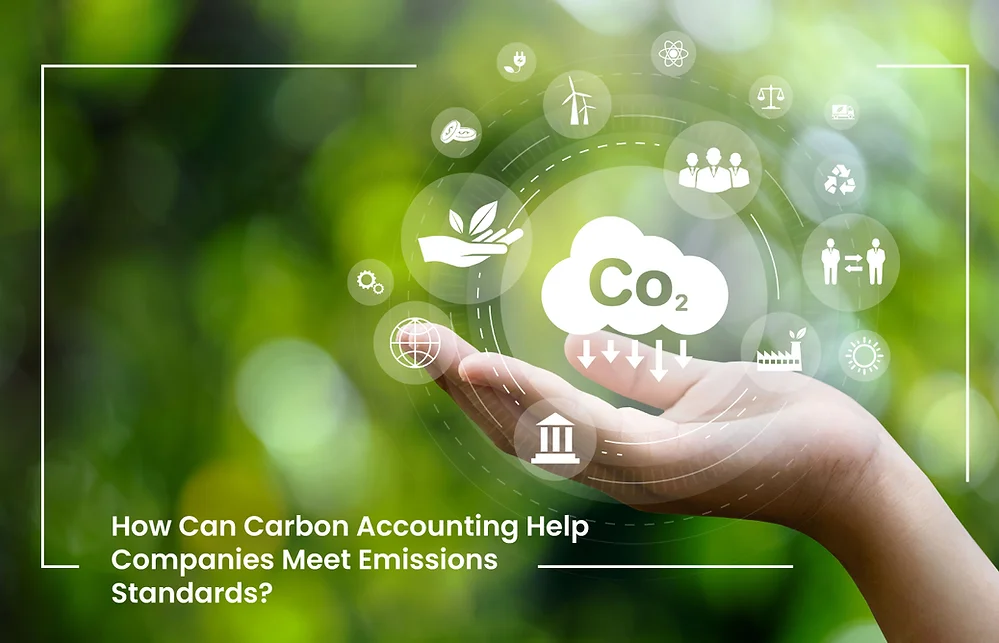Climate Leadership
Most businesses have understood the importance of Environmental, Social, and Governance (ESG) performance. Among the three factors, environmental concerns take a prominent position and companies strive to mitigate environmental risks and reduce their carbon footprint.
Before they lay out their action plans and implement them, they should have accurate data on their contribution to carbon emissions. This is where carbon accounting comes into play.
What is Carbon Accounting?
Carbon accounting is the process in which a company measures the level of carbon dioxide emission they are responsible for. It is also called greenhouse gas accounting. It involves monitoring, reporting, and verifying data about emissions at various levels from business operations to product life cycles.
For accounting purposes, emissions have been classified into three categories.
Scope 1 Emissions
These are direct emissions from machinery, vehicles, etc., owned and controlled by a company.
Scope 2 Emissions
These include emissions resulting from resources, such as electricity, heat energy, steam, purchased by the company.
Scope 3 Emissions
These comprise all other indirect emissions that are not covered under the first two categories. These are also called value chain emissions as these result from manufacturing or producing a finished product.
Scope 3 emissions are variable among the industries, depending on the products and services. For example, emission from vehicles owned by a logistics company is scope 1. In contrast, emissions from vehicles used for the transportation of raw materials and products belong to scope 3.
Scope 3 emissions contribute to about 75% of companies’ emissions according to the carbon disclosure project. Further, supply chain operations are the major contributors to scope 3 emissions. (ref: https://www.ibm.com/topics/scope-3-emissions)
How does carbon accounting help companies attain emission standards?
We have all heard the often repeated saying “What gets measured gets done.”
It means regular measurement and reporting keeps one focused — as the data resulting in information helps make decisions that improve the results. Carbon accounting helps companies outline their emissions profile. It enables them to set ambitious yet realistic emission reduction targets, which help them to prepare mitigation strategies and achieve emission standards.
Based on the data, companies can identify opportunities for operational improvements, energy efficiency measures, renewable energy adoption, waste reduction, supply chain optimization, and other initiatives to mitigate emissions. Further, real-time monitoring of emissions enables them to track the effectiveness of actions implemented.
How can you improve your carbon accounting system?
Data quality and data access are two fundamental aspects of carbon accounting. Incorporation of integrated and fully automated carbon accounting solutions reduces errors, costs, and duration of reporting cycles. They utilize operation-specific sensing technologies for emission monitoring and blockchains as ledger technology for transparent emission registration.
Thus, improved data quality and access help companies to improve the accuracy of carbon emission measurements and make right decisions to optimize their strategies.
How does your business benefit from carbon accounting?
Carbon accounting assists companies to improve their compliance with ESG standards, which have evolved as the most favored evaluation criteria for investors, stakeholders, and customers.
It enables companies to reduce emissions, optimize resource utilization, and optimize their investment. On the other hand, it indirectly helps them improve their social virtues as follows.
- Encouragement of innovation and new business opportunities focussing on environmental causes.
- Compliance with regulations and standards
- Positive impact on local and global communities
- Employee engagement by motivating them to commit to environmental protection.
In addition, it facilitates transparent and consistent reporting of emissions in a standardized format, such as the Greenhouse Gas Protocol. It helps them present their credibility to investors and stakeholders.
In conclusion, carbon accounting helps companies identify high-emission areas and make data-driven, accurate decisions to improve their sustainability index.
AccelESG is one of the leading sustainability partners specializing services ranging from ESG-related investigations to net-zero strategies.

